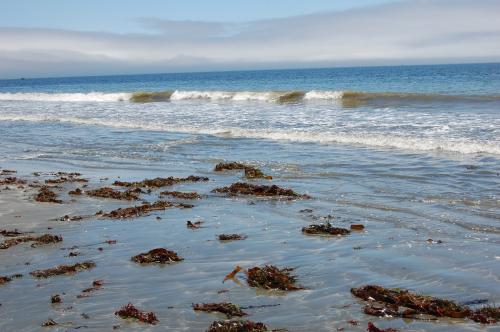Kelp as a New Biofuel Source
Could brown kelp one day provide a global supply of biomethane and ethanol? Any beachgoer in the Pacific Northwest would recognize the long, stringy Sugar Kelp (laminaria saccharina) that frequently washes up on beaches there. Although kelp’s commercial applications are currently limited, Paal Bakken, founder and CEO of Seaweed Energy Solutions, believes that can change, reported Renewable Energy World’s website.
Bakken argues that seaweed can provide commercially feasible biomass for biomethane and ethanol. Bakken’s company, which is based in Norway, has been working on cultivation technology development since 2008. SES has successfully produced both biomethane and ethanol in testing and is currently waiting for the funds to move into the next stage of development.
Bakken’s biomass idea is conceptually sound; the difficulty lies in the offshore production of brown kelp. To maximize efficiency, huge quantities of seaweed must be produced at a low cost, which has not yet been made cost-effective. Most of the world’s seaweed is currently harvested off the coasts of Asia, yet the Chinese method of production is too labor-intensive to be commercially feasible to Bakken. SES has a seaweed breeding facility in Norway and is analyzing cultivation tests in the ocean off Norway, Portugal, and Denmark. Yet because seaweed requires water that contains an abundance of nitrogen, phosphorous, and carbon dioxide, which is typically found near coastal areas and deep ocean water, the future of macroalgae production will be limited by both geographic location and the development of mariculture facilities.
Harvesting the kelp may present another issue. Kelp is primarily composed of water and salt, both of which must be removed during the harvesting process. Michael Cooney, a chemical engineer at the Hawaii Natural Energy Institute, believes that the energy required to dewater and desalt the kelp will increase the overall production cost and thus present a significant challenge.
Although the ocean occupies more than 70 percent of the earth’s surface, it currently produces only two percent of the world’s food, feed, and materials. With resources dwindling on land, Bakken believes that the world must invest in new sources of renewable energy.
The Chanler Group is actively engaged in the review and analysis of incentive-based renewable energy programs to determine potential benefits to our clients. Global energy consumption continues to increase each year and, with this increase, the demand for safe, clean, and unlimited energy is on the rise. The Federal and State governments promote this interest through a variety of financially-beneficial incentives. Our understanding of these laws allows us to guide homeowners, businesses, and/or developers through the various ways to take advantage of these incentive-based benefits. With the appreciation that renewable energy laws and regulations are constantly changing, The Chanler Group is committed to investing in its understanding and practice of this area of law.
Photo Credit: Sally Hirst


